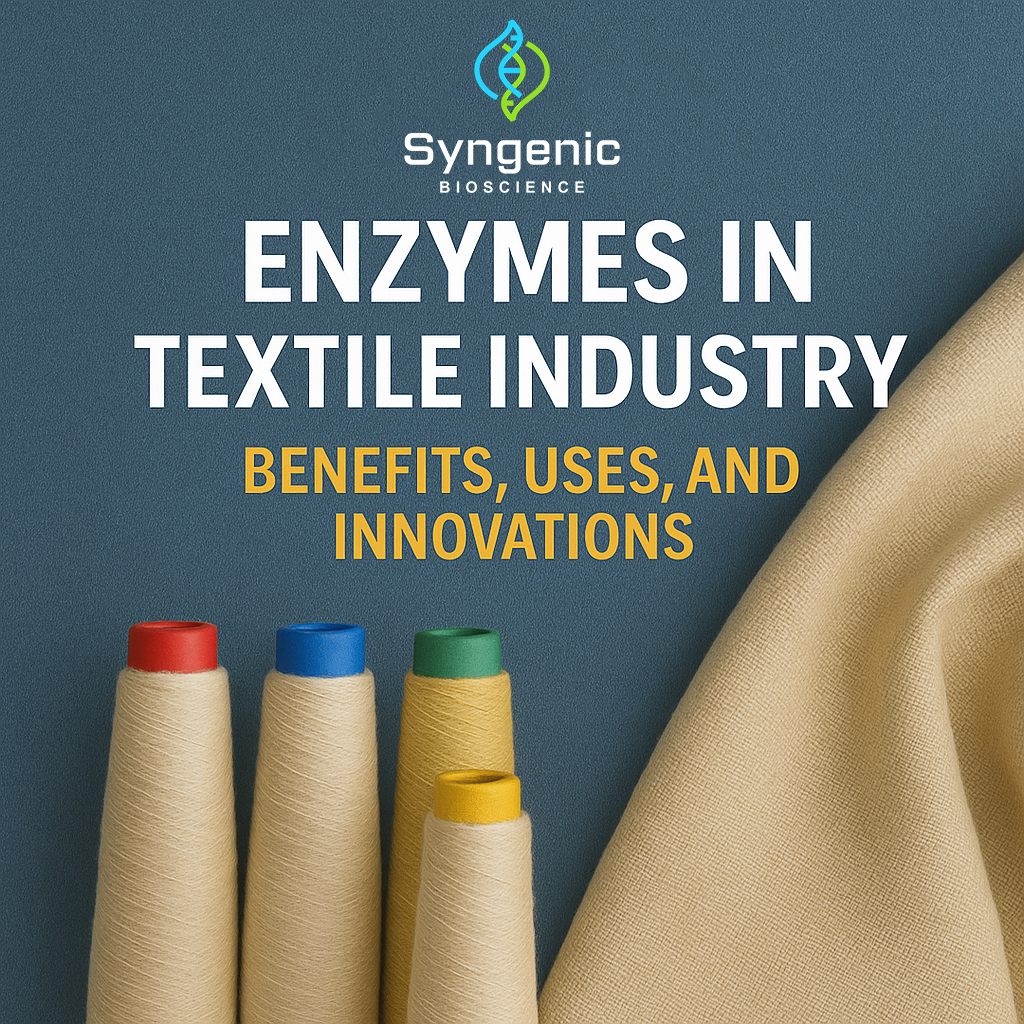sales@synenzyme.com
+91 70435 76795

The textile industry has always been a centre of creativity, innovation and change. Over the years, one of the biggest changes has been adopting environmentally friendly technologies that reduce dependence on rigid chemicals. Amidst these progresses, the use of enzymes in textile industry processes has been a game-changer.
From bio-polishing and bleaching, from designing and scoring, enzymes are now necessary in making clothes that are not only high in quality, but also environmentally responsible. Leading the way in providing advanced textile enzyme solutions is Syngenic Bioscience, a company that is committed to sustainable practices for combining biotechnology.
Traditionally, textile processing has relied on strong chemicals and high-energy inputs, which often damage the environment and reduce the life of fabrics. The introduction of enzymes in textile industry applications has helped to remove these challenges:
This is why textile manufacturers worldwide are transitioning to enzyme-based processing to achieve better performance by meeting stability goals.
Enzymes play a role in almost every stage of fabric preparation and finishing. Here are some of the major applications of enzymes in the operation of the textile industry:
1. Desizing
Fabrics are coated with starch during knitting to provide strength. A textile enzyme such as amylase, breaks this starch, which prepares the fabric for further processing without damaging the fiber.
2. Scouring
Pectinage and lipase enzymes help remove natural impurities such as pectin, wax and oil from cotton. This process ensures better dye penetration and cleaner fabric.
3. Bio-polishing
Cellulase, a widely used textile enzyme, removes small protective fibers from the surfaces of the fabric, giving clothing a smooth texture and reduces pilling.
4. Bleaching aid
Catalase enzymes are used to remove residual hydrogen peroxide after bleaching, save water and save time in rinsing.
5. Denim finishing
Enzymes such as cellulase produce the “stone-wash” effect on the denim without the use of pumice stones, which makes the process more durable and reliable.
6. Wool processing
Protease enzymes help soften wool, prevent shrinkage and improve comfort without the use of rigid chemicals.
Each of these applications suggests how enzymes are re-shaping textile processes by improving the quality of fabric.
The field of biotechnology is constantly developing, and therefore the use of enzymes in the the textile industry. Some of the latest innovations include:
When it comes to finding the right textile enzyme solution, Syngenic Bioscience has deployed itself as a reliable partner for the textile industry. Here’s why:
With a reputation for excellence and reliability, syngenic bioscience is helping textile companies to embrace biotechnology, reducing their environmental footprint.
Adopting enzyme in the operation of the textile industry is more than only one trend – this is the future of textile processing. From reducing environmental effects to increasing the quality of the fabric and cutting the cost, the enzymes have changed how clothes are produced.
With advanced textile enzyme solutions, companies such as Syngenic Bioscience are ensuring that manufacturers not only meet consumer expectations for quality, but also contribute to the more durable world.
If you want to upgrade your textile processes with innovation and environmentalism, then syngenic bioscience is the only reliable solution.